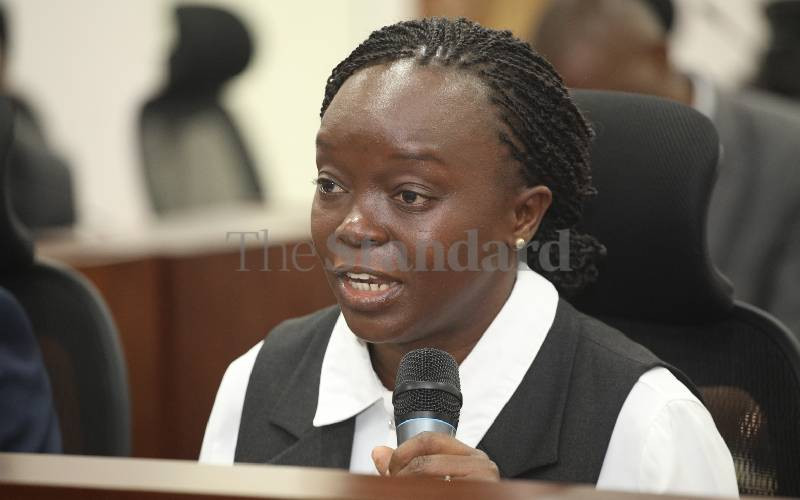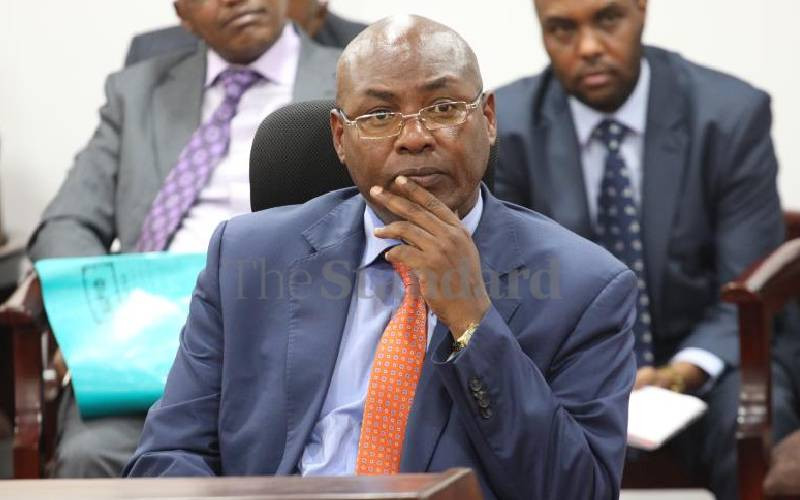If you are fat and on screen, your days are numbered. But you will not be spared the chop either if you are deemed too slim, or thin.
Starting April 8, the sizes of those gracing Kenyan television screens will be monitored – certain sizes will be off air.
This is after the Kenya Film Constitution Board (KFCB) ratified a law that calls for "sanity" on TV screens.
Since July last year, the board, through its CEO Ezekiel Mutuwa, has repeatedly told the press that KFCB is serious about protecting Kenyan children from pornography as well as pictures which promote the wrong culture.
"This is only the beginning," Mr Mutuwa told The Standard on Friday after it got hold of the confidential law which had been sneaked into the country's statute books.
"There is a lot in the pipeline. What we want is to make sure that our children are not exposed to certain lifestyles that are harmful to their overall growth, and that of the nation."
Currently, KFCB feels more empowered, having officially taken charge of regulatory responsibilities from the Department of Film Services early on in the year. Mutuwa denied claims that the new laws were antagonistic to the Bill of Rights.
"We are looking at this from the broader perspective. We don't want our children to have the wrong impression of health and sexuality. Fat people are unhealthy. We want our children to grow up with the right picture of how a human being should look," he said.
In the recent past, KFCB attracted criticism after it prevented US-based Netflix from beaming its content into Kenya, because "that platform has risqué and improper content for audiences as young as 13."
With the passing of the new law, which KFCB and other ministries including Education, Health and even Infrastructure pushed for, the entity is in the process of ordering all TV stations to create space in their studios for KFCB officers who will vet and block those deemed unsuitable to give live interviews.
"Yes, we will start with guests on TV shows. Not long after, we should be determining what airs on TV and which movies can be shown in Kenya. If the content has people who are morbidly obese or anorexic then we will not allow them to go through," Mutuwa said.
Documents, copies of which are in our possession, indicate that KFCB will eventually sink its teeth into TV commercials with "inappropriate" casts.
Already rights groups are up in arms, seeking to block the new law through the court. The Kenya Commission on National Human Rights has written a letter, discrediting KFCB's operations, terming them "regrettable". The Media Council of Kenya has criticised this new law.
 The Standard Group Plc is a multi-media organization with investments in media platforms spanning newspaper print
operations, television, radio broadcasting, digital and online services. The Standard Group is recognized as a
leading multi-media house in Kenya with a key influence in matters of national and international interest.
The Standard Group Plc is a multi-media organization with investments in media platforms spanning newspaper print
operations, television, radio broadcasting, digital and online services. The Standard Group is recognized as a
leading multi-media house in Kenya with a key influence in matters of national and international interest.











